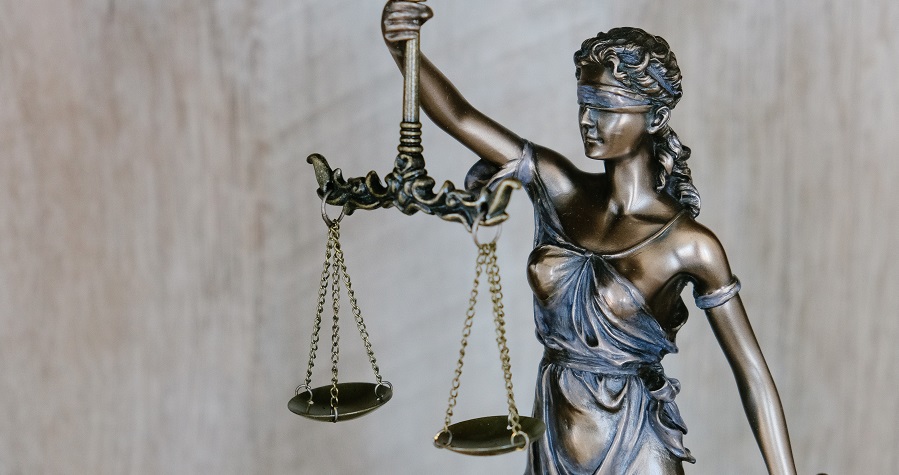Global and National Context of Unease
Emerging into the second half of 2020, societies around the world have grappled with COVID-19 and protests against police brutality and institutional racism. Accompanying this, issues of individual and human rights have been brought to the forefront as people ask to what extent can a government legislate policies, rules, and societal controls without infringing on an individual’s rights? When and how is it okay for the government to disrupt a protest? Is the use of tear gas on civilians ever acceptable? Does the government have a right to mandate the wearing of masks in public? In short, to what extent do crises allow a government to infringe and/or inconvenience its citizens’ rights?
These events and questions have also magnified issues of institutional inequality and justice. Police brutality, racial inequality, and socio-economic gaps are all examples of these institutional and judicial problems that have been pushed to the forefront of peoples’ concerns. Problems and infringements on the rule of law do not only exist in this vacuum, however. In what way can this be seen in legal practice and the administration of justice?
A “Cavalier Institutional Approach” to the Rule of Law
Federal Judge Patrick Gleeson has recently shed light on this issue by calling out the Canadian Security Intelligence Service (CSIS) for having a “cavalier institutional approach” to the rule of law. What Gleeson is referring to is not instances of the police making arrests or seizing evidence without a warrant. He is instead addressing concerning new revelations where departments and police forces have lied, fabricated evidence, or misrepresented evidence to judges in order to obtain warrants. This is worrisome, as it poses a “high legal risk” to the transparency, legal process, and legitimacy of the entire judicial system.
Furthermore, it can be interpreted as widespread institutional violations of peoples’ Charter rights under Section 8 – the right against unreasonable search and seizure, as well as Section 24 – the right to obtain remedy for an infringement or denial of one’s rights. Although Section 24 can lead to the exclusion of evidence seized illegally, the decision to include or exclude wrongfully seized evidence ultimately comes from a judge’s decision on whether or not this information could have and would have been discoverable without the wrongful search.
This remedy in and of itself brings forward some legal issues of its own. Firstly, the frequent admittance of evidence that had been seized illegally “would bring the administration of justice into disrepute”. Secondly, it would create an appearance that an individuals’ Charter rights, the most highly regarded individual rights in Canada, are subject to the whim of government bureaucrats and the Judiciary. Thirdly, the continued admittance of wrongfully obtained evidence would create a chasm where governmental departments and police forces are left to freely infringe on citizens’ charter rights without being held accountable or facing any repercussions.
The discussion of looking at remedies, however, is futile, so long as institutional acts of illegality are not reported to or by CSIS or the Department of Justice, where the withholding of information was not a result of unforeseen circumstances or neglect, but rather through an institutional response that ignored the illegality to their own benefit.
Mr. Gleeson addressed these complex issues with the following statements:
“The security intelligence function is vital to the nation’s security. I appreciate the challenges that those charged with the responsibilities of carrying out this function face. Despite these challenges, this Court and the Canadian public must have confidence that respect for the rule of law is and remains a foundational principle underpinning all national security intelligence decision-making. The circumstances disclosed here suggest a degree of institutional disregard for—or, at the very least, a cavalier institutional approach to—the duty of candour and regrettably the rule of law.”
Institutional Change, Action, and Accountability
Fortunately, the current Interim Director acknowledges these problems and attributes them to changes that have occurred in “Canada’s legal landscape” and recognizes that the law is evolving to where there is now an increased legal risk to CSIS employees. With acknowledging these issues, the Federal government has created a legislative justification regime to properly address the risks stressed by Mr. Gleeson. This has left Canadians in a state where they must wait to see what changes to the implementation and upholding of Charter rights occurs and, perhaps, what to expect regarding their other rights.
Will the Canadian government and the administration of justice show that fundamental rights are to be respected before all else? Or will they leave the Canadian public with a sense of insecurity and distrust at a time where people are already living with unease and skepticism?
Citations
https://www.canada.ca/en/security-intelligence-service.html
Share this article
Arghavan Gerami
Arghavan Gerami is the Founder and Senior Counsel at Gerami Law Professional Corporation ('PC'), a full-service immigration law firm in Ottawa, Ontario. Since 2011, Ms. Gerami has focused her practice on immigration and refugee litigation. Prior to that, Ms. Gerami worked at the Ministry of Attorney General and the Department of Justice and had the privilege of serving the Honourable Mr. Justice M. Evans at the Federal Court of Appeal on immigration and administrative law appeals. Ms. Gerami contributes to the Immigration Law Section of the Canadian Bar Association, the Canadian Association of Refugee Lawyers, and the United Nations High Commissioner for Refugees. Ms. Gerami has also published numerous journal articles and presented at various immigration and refugee law conferences and events across Canada.

